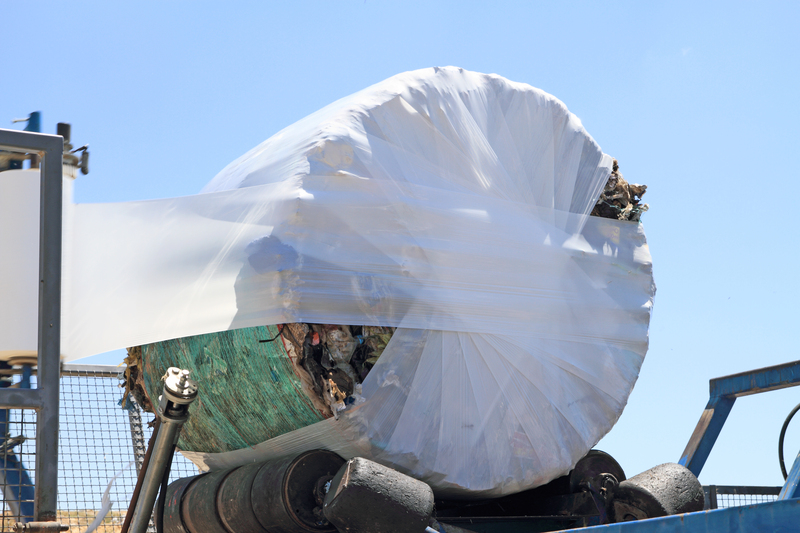Efficient Recycling: Restaurant Food Waste Solutions
Introduction to Food Waste in Restaurants
As the global population continues to grow, the issue of food waste has become more pronounced, particularly within the hospitality industry. Restaurants, in particular, face significant challenges when it comes to managing and minimizing food waste. However, with efficient recycling practices and sustainable strategies, restaurants can transform their waste management processes and contribute to environmental preservation.

Understanding the Scope of Restaurant Food Waste
The amount of food waste generated by restaurants is staggering. A sizeable portion of this waste ends up in landfills, where it decomposes and produces methane, a potent greenhouse gas. Addressing food waste in restaurants not only benefits the environment but also helps businesses save money and enhance their corporate reputation.
- According to the Food and Agriculture Organization (FAO), approximately one-third of all food produced is never consumed.
- Restaurants waste between 4-10% of the food they purchase.
- Food waste accounts for about 24% of all landfill waste in the United States.
The Benefits of Efficient Recycling in Restaurants
Implementing effective food waste recycling solutions in restaurants offers multiple benefits:
- Cost Savings: By reducing waste, restaurants can significantly cut down on disposal costs and save on ingredient expenses.
- Environmental Impact: Recycling food waste can help lower a restaurant's carbon footprint and contribute to global sustainability efforts.
- Brand Image: Restaurants known for sustainable practices can attract eco-conscious customers and improve their market position.
Innovative Solutions for Recycling Restaurant Food Waste
Composting: A Natural Recycling Process
One of the most straightforward methods for tackling food waste is composting. This natural process converts organic waste into nutrient-rich soil that can be used for gardening and agriculture. Restaurants can either compost on-site or collaborate with local compost facilities to dispose of food waste responsibly.
Benefits of Composting Include:
- Reduction in landfill contributions.
- Production of natural fertilizer, enriching soil without synthetic chemicals.
- Decreased need for traditional waste disposal services, potentially reducing costs.
Food Waste to Energy: Biogas and Biofuel Production
Restaurants can also opt to convert food waste into energy, a process known as anaerobic digestion. This method involves breaking down food waste in a sealed environment to produce biogas, which can then be used to generate electricity or converted into biofuel.
Advantages of Biogas Production:
- Provides a renewable energy source.
- Reduces dependency on fossil fuels.
- Minimizes greenhouse gas emissions.
Food Donation: Repurposing Edible Surplus
Not all food "waste" is inedible. Restaurants often have surplus food that can easily be donated to local food banks or charities. This approach not only addresses food waste but also helps in feeding the local community.
Why Consider Food Donation?
- Fights against hunger by providing meals to those in need.
- Reduces environmental impact by limiting food sent to landfills.
- Enhances community relationships and boosts restaurant reputation.
Technological Solutions: Smart Waste Trackers
Innovative technologies are revolutionizing the way restaurants handle food waste. Smart waste trackers are devices or software that monitor waste levels, types, and origin points, providing restaurants with insights to make informed decisions.
Benefits of Smart Waste Management:
- Real-time data to identify waste patterns and optimize operations.
- Assists in inventory management by preventing overordering.
- Helps set actionable waste reduction goals.

Best Practices to Minimize Food Waste in Restaurants
Conducting Waste Audits
Regular waste audits can help identify where waste is stemming from and what can be done to improve. By understanding food waste patterns, restaurants can implement targeted measures to reduce waste effectively, conserving both resources and expenses.
Staff Training & Awareness
Empowering employees with the knowledge and skills to manage food waste is crucial. Training programs that teach staff about portion control, proper storage techniques, and efficient inventory management can significantly reduce unnecessary waste.
Optimizing Menu Design
Streamlining menus by eliminating low-selling or high-waste items can also contribute to waste reduction. Additionally, offering customizable portion sizes allows customers to choose the quantity that suits them best, minimizing leftover food.
Engaging Customers in Waste Reduction
Restaurants can engage customers by featuring waste-reducing initiatives, such as "no-waste" dishes or eco-friendly packaging. Incentives or discounts for customers who participate in the initiative can also motivate more sustainable behaviors.
Conclusion
Efficient recycling and waste management in restaurants require a combination of innovative solutions, strategic planning, and engagement from both staff and customers. By adopting these practices, restaurants can not only reduce their environmental footprint but also experience significant cost savings and enhance their reputation as a sustainable business. Implementing these solutions presents a win-win scenario: a healthier planet and a more profitable, sustainable operation.